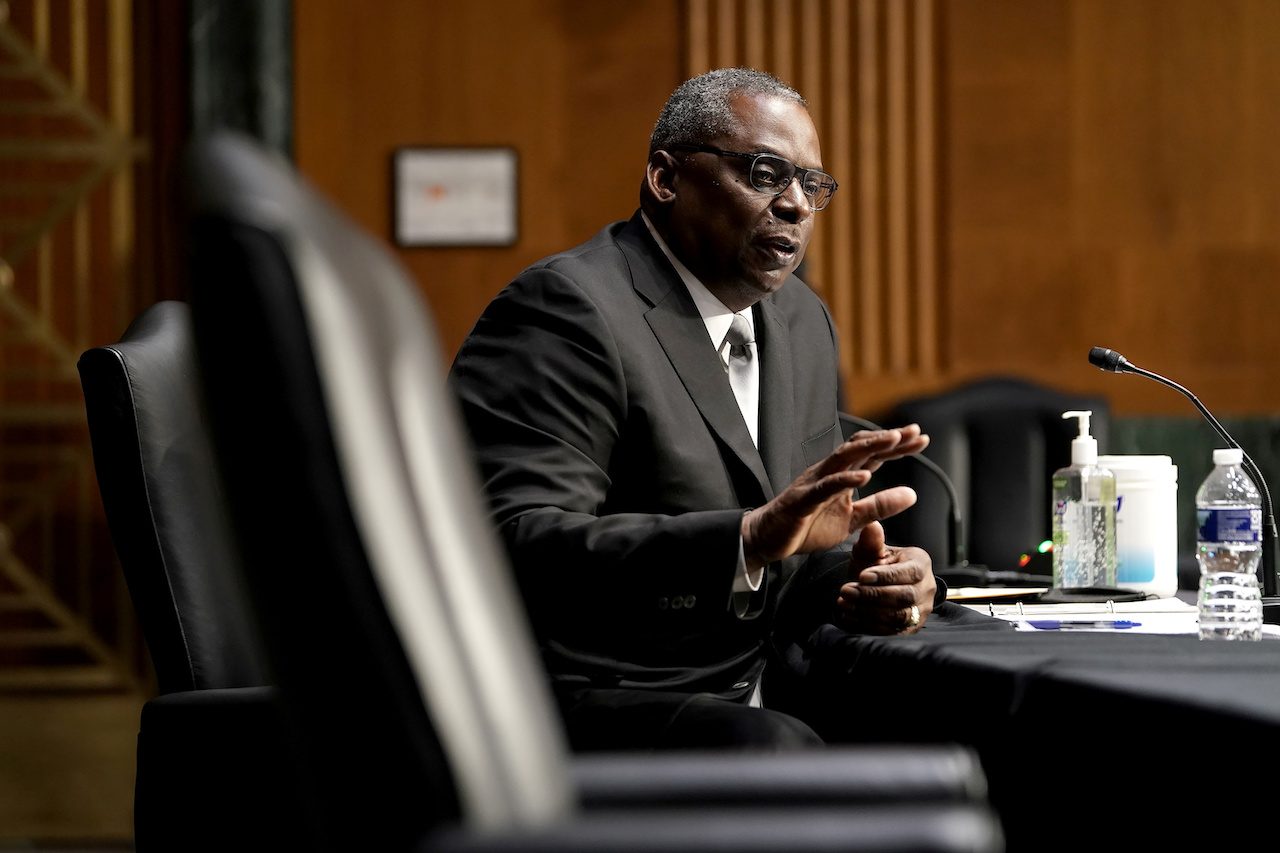SUMMARY
This is AI generated summarization, which may have errors. For context, always refer to the full article.

Discussions on the future of the Visiting Forces Agreement (VFA) are expected to take place when US Defense Secretary Lloyd Austin heads to the Philippines in the coming days, marking the first time a member of President Joe Biden’s cabinet visits the country.
Speaking at a lecture organized by the International Institute for Strategic Studies (IISS) in Singapore, Austin said the Philippines, the US’ oldest ally in Asia, “is a very important country to us and we treasure that relationship, their partnership.”
Austin will visit the Philippines as the country reviews its ties with the US following tirades spewed by President Rodrigo Duterte in the past five years. Most recently, Duterte had declared in his final State of the Nation Address that he had no intention of visiting America during the remainder of his term.
“I look forward to having that discussion [on the VFA] with the minister of defense and the leadership about the potential of extending that agreement. But again, this is a thing that continues to be a work in progress and so far, I think we’re in a good place,” Austin said.

The VFA, which provides the legal framework for the presence of US troops in the Philippines for war games and joint activities, has been in limbo for over a year since Duterte decided to terminate the deal on February 11, 2020.
Duterte had unilaterally cut the deal over US lawmakers criticism of his controversial drug war as well as US decision to revoke the visa of Senator Ronald “Bato” dela Rosa, his ally and first police chief. He later suspend the VFA abrogation – first in June 2020, a second time in November following Biden’s electoral win, and a third time in June 2021, to make way for further negotiations.
Before Duterte’s latest decision to suspend the VFA’s termination for another six months, Philippine and US diplomats said negotiations done earlier this year had “improved” the deal between the two countries.
As he heads to Manila, Austin said, “We’ll continue to build upon the progress that we’ve made.”
The VFA, which operationalizes the two countries’ Mutual Defense Treaty, is seen by diplomats and security officials as an important agreement that forms part of the two countries’ national security framework. The military agreement was also viewed as a deterrent China’s aggressive claims in the South China Sea, including the West Philippine Sea, as the Philippine military remains one of the weakest in the region.
Quest to deepen partnerships
Austin, who is on a Southeast Asia tour, sought to reassure allies of the US’ commitment and eagerness to partner with countries in the region amid increased competition with China. The top Biden official reiterated Beijing’s claims in the waterway have “no basis in international law.” He added, “That assertion treads on the sovereignty of states in the region.”
The US, Austin said, would support coastal states in upholding their rights under international law. He renewed Washington’s commitment to treaty obligations with Japan in the Senkaku Islands and the Philippines in the South China Sea.
Austin said while the US does not seek confrontation with China, “we will not flinch when our interests are threatened.” But as relations have become more fractious between the two powers, most Southeast Asian regions have said they do not want to pick sides.
US ties with Southeast Asia “are bigger than just geopolitics,” Austin said. “We are not asking countries in the region to choose between the United States and China. In fact, many of our partnerships in the region are older than the People’s Republic of China itself,” he added.
And despite China’s heavy presence in Southeast Asia, Austin said Washington is committed to deepening partnerships with allies to tackle challenges in the region “that is the highest strategic priority for the Department of Defense.”
“I learned a core lesson over four decades as a soldier, in peace and in war: Nobody can go it alone, at least not for very long. We are far stronger, and for far longer, when we come together than when we let ourselves be split apart,” Austin said. – Rappler.com
Add a comment
How does this make you feel?





There are no comments yet. Add your comment to start the conversation.